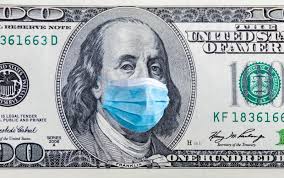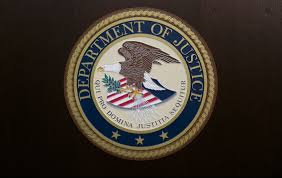DOJ Hoarding and Price Gouging Task Force Seizes Critical Medical Supplies and Distributes to New York and New Jersey Hospitals

The Justice Department and the FBI have quickly acted to focus on fraudsters and hoarders seeking to profit from the public panic in response to the pandemic. DOJ issued a memo to U.S. Attorneys prioritizing investigations and prosecutions in this area. (Here).
To combat hoarding and price gouging for critical supplies, the President issued an executive order (Here) which prohibits hoarding and price gouging of designated critical items. DOJ created the COVID-19 Hoarding and Price Gouging Task Force (See Memo to US Attorneys HERE) to focus on scarce medical supplies needed by hospitals. Under the Executive Order, the Secretary of HHS issued a notice designating categories of health and medical supplies that must not be hoarded or sold for exorbitant prices. (Notice HERE).
The Defense Production Act prohibits any person from accumulating designated materials (1) in excess of the reasonable demands of business, personal, or home consumption, or (2) for the purpose of resale at prices in excess of prevailing market prices.

The term materials includes “(A) any raw materials (including minerals, metals, and advanced processed materials), commodities, articles, components (including critical components), products, and items of supply; and (B) any technical information or services ancillary to the use of any such materials, commodities, articles, components, products, or items.”
The HHS Secretary designated the following as scarce materials or threatened materials: (1) N-95 Filtering Facepiece Respirators (to cover nose and mouth); (2) Other Filtering Facepiece Respirators, including single-use, disposable half-mask respiratory protective devices that cover the user’s airway (nose and mouth); (3) Elastomeric, air-purifying respirators and appropriate particulate filters/cartridges; (4) Powered Air Purifying Respirator (PAPR); (5) Portable Ventilators, including portable devices intended to mechanically control or assist patient breathing by delivering a predetermined percentage of oxygen in the breathing gas; (6) Drug product with active ingredient chloroquine phosphate or hydroxychloroquine HCl; (7) Sterilization services for any device, including devices that already have FDA marketing authorization and those that do not have FDA marketing authorization but are intended for the same uses; (8) Disinfecting devices intended to kill pathogens and other kinds of microorganisms by chemical means or physical means, including sanitizing and disinfecting products suitable for use in a clinical setting; (9) Medical gowns or apparel, e.g., surgical gowns or isolation gowns; (10). Personal protective equipment (PPE) coveralls, e.g., Tyvek Suits; (11) PPE face masks, including any masks that cover the user’s nose and mouth and may or may not meet fluid barrier or filtration efficiency levels; (12) PPE surgical masks, including masks that covers the user’s nose and mouth and provides a physical barrier to fluids and particulate materials; (13) PPE face shields; (14) PPE gloves or surgical gloves; and (15) Ventilators, anesthesia gas machines modified for use as ventilators, and positive pressure breathing devices modified for use as ventilators, ventilator tubing connectors, and ventilator accessories.

Once an item is designated, the statute makes it a crime for any person to willfully accumulate that item either (1) in excess of his or her reasonable needs or (2) for the purpose of selling it in excess of prevailing market prices. See 50 U.S.C. §§ 4512, 4513. Such a crime is punishable by up to one year in prison and/or a fine of $10,000.
Today, DOJ and HHS announced the distribution of hoarded PPE, including approximately 192,000 N95 respirator masks, to hospitals in New York and New Jersey. The FBI discovered the supplies on March 30 and HHS authorized the seizure and distribution. In addition to the N95 respirator masks, the FBI found 598,000 medical grade gloves and 130,000 surgical masks, procedure masks, N100 masks, surgical gowns, bottles of hand sanitizer and bottles of spray disinfectant. HHS agreed to pay the owner of the hoarder equipment pre-COVID-19 fair market value for the supplies.















